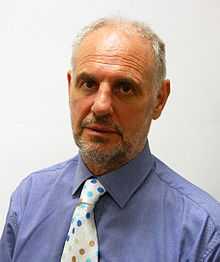Euthanasia in Australia
| Part of a series on |
| Euthanasia |
|---|
| Types |
| Views |
| Groups |
| People |
| Books |
| Jurisdictions |
| Laws |
| Court cases |
| Alternatives |
| Other issues |
| Resistance |

Euthanasia is illegal in Australia, but was legal for a period in the Northern Territory.
Current situation
Although it is a crime to assist in euthanasia, prosecutions have been rare. In 2002, relatives and friends who provided moral support to an elderly woman who committed suicide were extensively investigated by police, but no charges were laid. The Commonwealth government subsequently tried to hinder euthanasia with the passage of the Criminal Code Amendment (Suicide Related Materials Offences) Bill of 2004. In Tasmania in 2005 a nurse was convicted of assisting in the death of her elderly father, who had terminal cancer, and trying to kill her mother, who was in the early stages of dementia.[1] She was sentenced to two and a half years in jail but the judge later suspended the conviction because he believed the community did not want the woman put behind bars. This sparked debate about decriminalising euthanasia.[2] Decriminalisation of Euthanasia in Australia is supported by the Australian Greens, the Secular Party of Australia, the Australian Sex Party, the Australian Democrats, and the Liberal Democratic Party.[3]
In 2008 Shirley Justins and Caren Jennings, were found guilty of manslaughter and accessory to manslaughter respectively for providing Nembutal to former pilot Graeme Wylie in 2006. Justins claims that Wylie wanted to die "with dignity". The prosecution argued that Graeme Wylie did not have the mental capacity to make the crucial decision to end his life, classing it as involuntary euthanasia.[4]
In August 2009, the Supreme Court of Western Australia ruled that it was up to Christian Rossiter, a 49 year old quadraplegic, to decide if he was to continue to receive medical care (tube feeding) and that his carers had to abide by his wishes. Chief Justice Wayne Martin also stipulated that his carers, Brightwater Care, would not be held criminally responsible for following his instructions. Rossiter died on 21 September 2009 following a chest infection.[5]
Exit International made TV ads arguing for voluntary euthanasia, which were banned just before they were scheduled to broadcast in September 2010.[6]
Legalisation in the Northern Territory
Euthanasia was legalised in Australia's Northern Territory, by the Rights of the Terminally Ill Act 1995. It passed by a vote of 15 to 10 and a year later, a repeal bill was brought before the Northern Territory Parliament in August 1996, but was defeated by 14 votes to 11. [7] Soon after, the law was voided by an amendment by the Commonwealth to the Northern Territory (Self-Government) Act 1978. The powers of the Northern Territory legislature, unlike those of the State legislatures, are not guaranteed by the Australian constitution. However, before the Commonwealth government made this amendment, three people had already died through physician assisted suicide under the legislation, aided by Dr Philip Nitschke. The first person was a carpenter, Bob Dent, who died on 22 September 1996.
Organisations
The euthanasia advocacy group YourLastRight.com[8] is the peak organisation nationally representing the "Dying with Dignity" associations of Queensland, New South Wales, Victoria and Tasmania,[9] as well as the South Australian Voluntary Euthanasia Society (SAVES),[10] the Western Australian Voluntary Euthanasia Society (WAVES)[11] and the Northern Territory Voluntary Euthanasia Society (NTVES).[12]
Exit International is a euthanasia advocacy group founded by Philip Nitschke in Australia. Other Australian groups include Christians Supporting Choice for Voluntary Euthanasia[13] and Doctors for Voluntary Euthanasia Choice.[14]
Opposing euthansia in Australia are groups such as HOPE.[15]
See also
References
- ↑ "Legal case reopens euthanasia debate". Australian Broadcasting Corporation. 20 December 2005. Retrieved 26 February 2012.
- ↑ "Assisted suicide case prompts calls for euthanasia law review". Australian Broadcasting Corporation. 20 December 2005. Retrieved 25 February 2012.
- ↑ "Assisted Suicide". Liberal Democratic Party. 2009.
- ↑ Arlington, Kim (20 June 2008). "Graeme Wylie's partner Shirley Justins guilty of manslaughter". The Daily Telegraph. Retrieved 25 February 2012.
- ↑ "Quadriplegic Christian Rossiter dies from chest infection". News.com.au. 21 September 2009. Retrieved 25 February 2011.
- ↑ Alexander, Cathy (13 September 2010). "Pro-euthanasia TV ad ban 'a violation of free speech'". The Age. Retrieved 25 February 2011.
- ↑ "Euthanasia and Assisted Suicide in Australia." The World Federation of Right to Die Societies."
- ↑ http://www.yourlastright.com.au
- ↑ http://www.dwdv.org.au/Links.html
- ↑ http://www.saves.asn.au/
- ↑ http://www.waves.org.au/
- ↑ http://www.ntves.org.au/
- ↑ http://www.christiansforve.org.au/
- ↑ http://drs4vechoice.org/
- ↑ http://www.noeuthanasia.org.au
Further reading
- Bartels L, Otlowski M (February 2010). "A right to die? Euthanasia and the law in Australia". J Law Med 17 (4): 532–55. PMID 20329456.